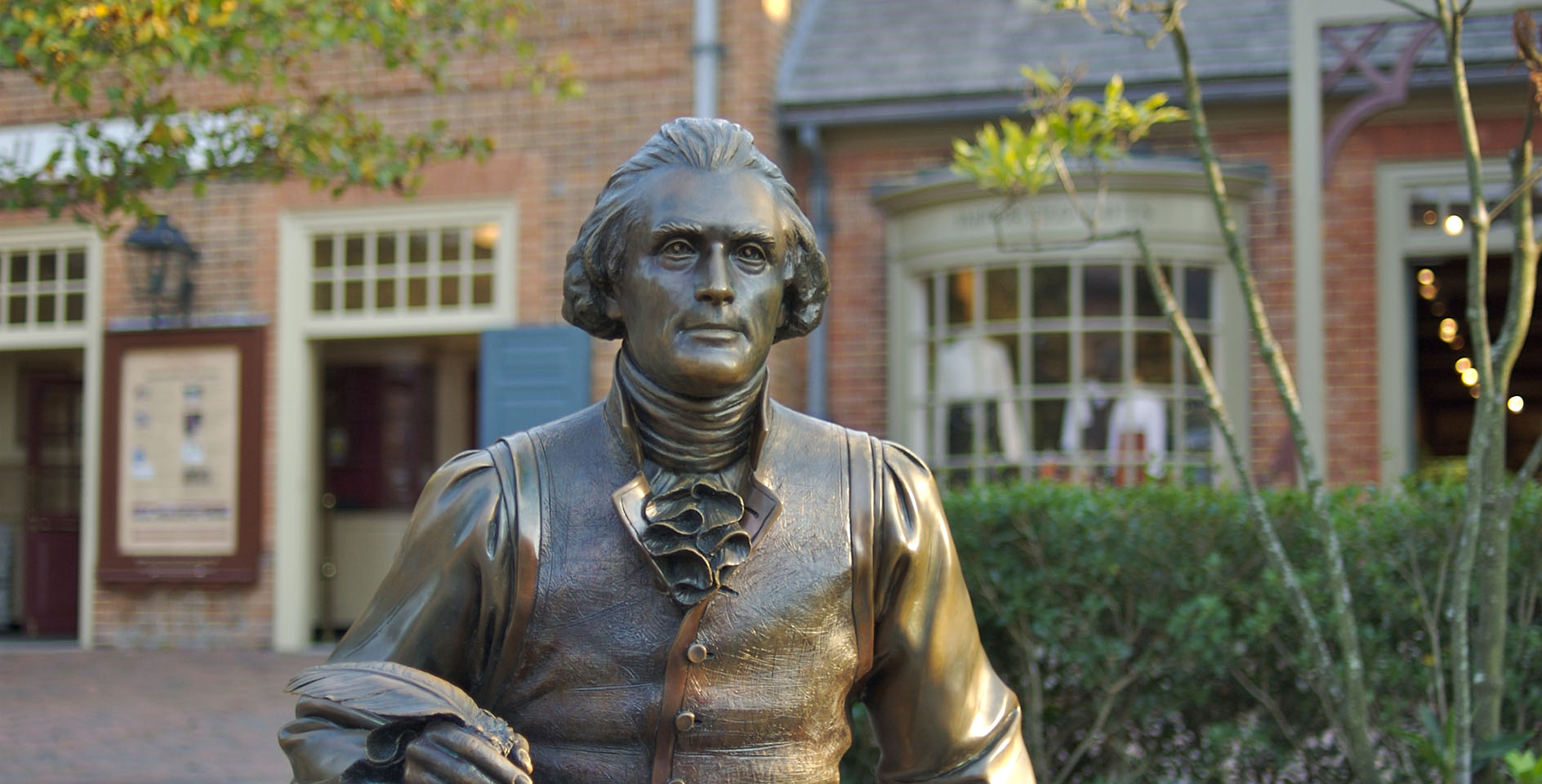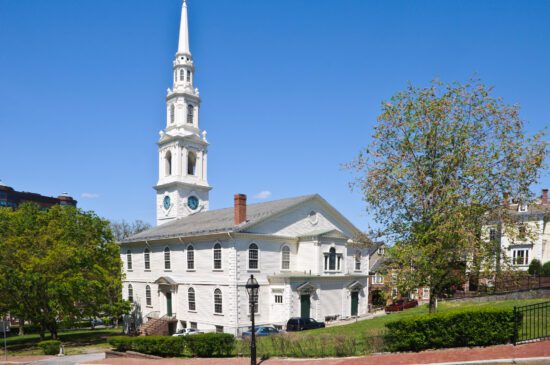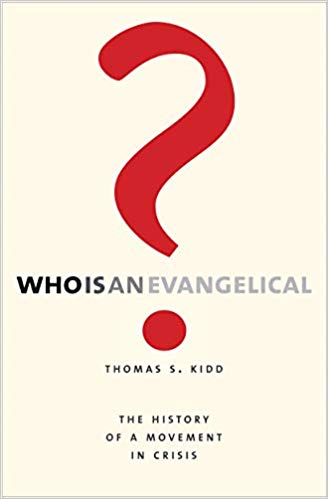In her brilliant book, Lost in Thought: The Hidden Pleasures of an Intellectual Life, Zena Hitz writes that true education involves “a reaching out past the surface, a questioning of appearances, a longing for more than is evident.” Her contention contrasts with modern conceptions of education that see the goal as absorbing correct opinions and dictating to students the predetermined correct interpretation.
Thomas S. Kidd’s new biography of Thomas Jefferson, Thomas Jefferson: A Biography of Spirit and Flesh, models the kind of intellectual exploration Hitz celebrates. There is perhaps no more controversial figure from American history than Thomas Jefferson, our nation’s third president and the author of America’s most cherished document, the Declaration of Independence. Kidd succeeds in revealing the complexity of this enigmatic man by, on the one hand, refusing to bypass his moral deficiencies, while, on the other hand, elucidating his intellectual genius and unmatched contributions to America’s political formation. As a result, Kidd’s biography takes readers, perhaps more successfully than any previous attempt, into the inner life of the “sage of Monticello.”
Just like Disney and the COVID-19 pandemic, the telling of history has been unable to evade the forces of politicization. On one side, we are told that figures like Jefferson are anathema and that their contributions should be deleted from the pages of history books because of their obvious moral failures. On the other side, such figures are placed on pedestals and celebrated as heroes with their mistakes fully whitewashed. Kidd wisely avoids both extremes in his biography, which serves as a “narrative of Jefferson’s moral universe more than a traditional biography” (3).
Through Kidd’s close examination of Jefferson’s inner life and corresponding actions, a picture emerges of a man with many contradictions. How could the same man write one of the most compelling arguments for universal human freedom in history while holding slaves in bondage for the entirety of his life? How could the same man champion frugality as a republican virtue, yet pursue luxury to the degree that his entire adult life was lived under a dark cloud of suffocating debt? How could one so skeptical of dogmatic religious assertions call himself a Christian and remain a lifelong reader of the Bible?
The central dilemma in Jefferson’s moral universe
Of course, perhaps the greatest enigma—and one that Kidd treats in depth—involves Jefferson’s sexual relationship with his slave (and half-sister of his deceased wife), Sally Hemings. Kidd’s discussion of Hemings occurs in several places throughout the book, and he calls the affair “arguably the central dilemma in Jefferson’s moral universe” (89). Hemings was inherited by Jefferson upon the death of his father-in-law and was herself the progeny of a sexual affair between master and slave.
Jefferson’s affair with Hemings began in France after Sally served as travel companion for Jefferson’s young daughter Polly in 1787. By this time, Jefferson had been a bachelor for nearly five years after the tragic death of his wife from complications following childbirth. Jefferson apparently promised her he would not remarry. While Jefferson would never speak openly about the affair, it became the source of public speculation and scorn during Jefferson’s many political battles.
Kidd deftly examines Jefferson’s letters from Paris around the time of the affair to find clues but ultimately concludes that we have no direct evidence concerning the precise nature of their relationship. Jefferson envisioned himself in the style of the biblical patriarchs, ruling over his estate and slaves at Monticello, and followed that lifestyle even in his sexual habits. Sally Hemings would bear six of Jefferson’s children. Her son would later write that she was hesitant to return from Paris to the life of a slave in America but relented when Jefferson promised certain privileges and vowed to free her children when they reached the age of 21.
Sally herself was not mentioned in Jefferson’s will, even though he did emancipate two of her children presumably in keeping with his promise to her. Jefferson likely left her name out of his will to avoid political scandal. Nevertheless, she was informally freed at Jefferson’s death and formally emancipated five years later by Jefferson’s daughter.
Despite expressing early opposition to slavery, Jefferson never expended political capital to end the wicked institution and maintained negative views of Black people as a race throughout his life. In old age, Jefferson wrote against emancipation on the grounds that free Blacks’ “amalgamation with other colour produces a degradation to which no lover of his country, no lover of excellence in the human character can innocently consent” (195). As Kidd points out, it’s hard to imagine how any man could reconcile such sentiments with his own contradictory actions. But again, we see in Jefferson a man of many enigmatic contradictions.
Jefferson and the question of religion
What are we to make of Jefferson’s own religious faith? Kidd concludes that Jefferson was a Unitarian. He denied the Trinity, cut out most of the miraculous stories for his infamous cut-and-paste Bible, and despised esoteric conversations on matters of theological doctrine. But he maintained a lifelong belief in a Creator God who providentially ruled the universe and held the teachings of Jesus in high esteem.
Jefferson’s writings are filled with references to God’s guiding providence, and Jefferson even appealed to God in prayer. He based the Declaration of Independence on the Christian doctrine of creation and adorned the walls of Monticello with French paintings of biblical scenes. He sent his daughter Patsy to Catholic school in France while they were living there during his diplomatic mission and preferred the spiritual temperament of America to the apathetic luxury of Europe. But these words and actions must not lead to Jefferson’s christening; to him, Jesus was a man—the most excellent one—but just a man all the same.
Further, Jefferson was reared in a context informed by the Bible, and Jefferson himself knew the Bible better than many Christians today. Kidd masterfully recognizes scriptural allusions in Jefferson’s writings and points out how Jefferson and the other founders envisioned themselves repeating biblical and classical scenes from history on the new American stage (29).
But Jefferson’s most intense religious passions were reserved for his political convictions. Kidd deftly points out many instances of Jefferson applying biblical imagery to political happenings. The Age of Revolutions was, for Jefferson, a new creation. His Federalist political opponents were deemed “heretics” because of their longings for monarchical ways. The victory of republican liberty in America was a sure sign of God’s providential hand guiding history toward its climactic end. In Jefferson, we see already the seeds of that tendency to conflate America’s political actions positively with God’s actions in the world.
In conclusion, Kidd’s biography leaves no stone unturned in examining the inner life of America’s third president. Jefferson’s legacy has loomed large since America’s inception, and Kidd’s deep dive into Jefferson’s moral and religious universe will aid readers who want to understand this brilliant man of confusing contradictions.







